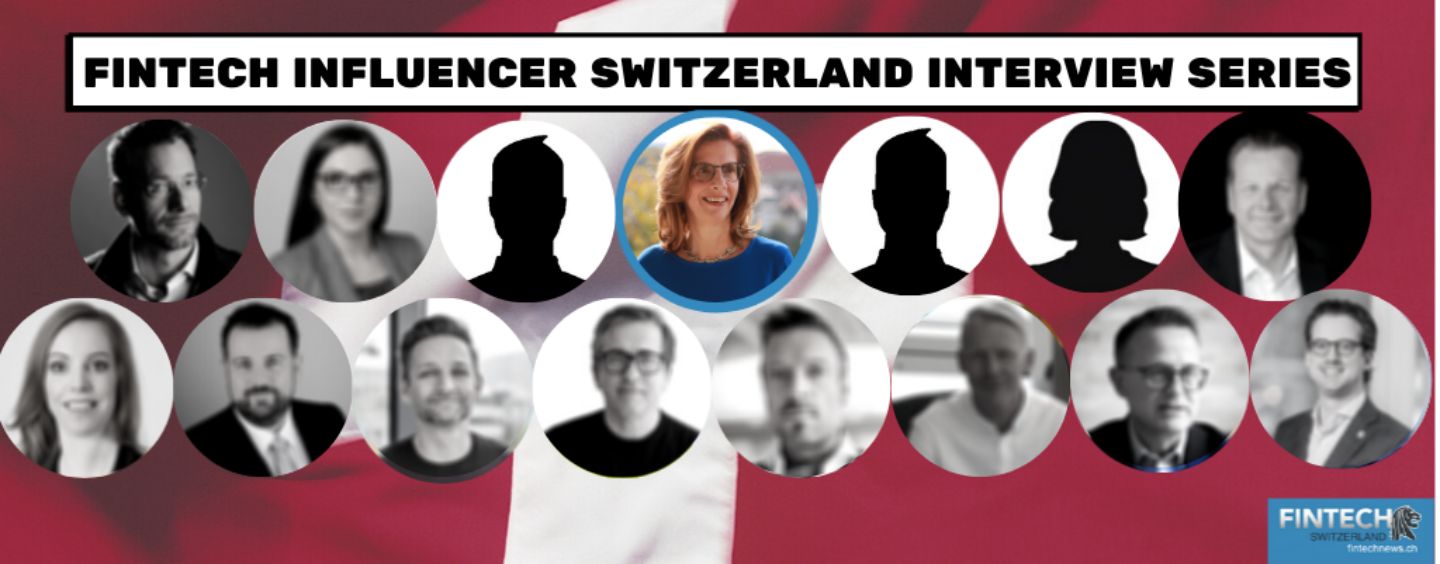
7 Questions to Efi Pylarinou about Wealthtech and Blockchain Trends
by Fintechnews Switzerland June 24, 2020In May 2020, Fintechnews.ch launched the Fintech Influencer Switzerland Interview series, which presents at least once a week a short interview we have conducted with a well-known, longtime Swiss Fintech Influencer to get his or her views on some of the industry’s most urging issues and hottest trends.
Today we speak about Wealthtech and Blockchain trends in Switzerland with Efi Pylarinou, an independent Wealthtech& Blockchain advisor. Efi was nominated by Oliver Bussmann and Urs Bolt.
Hi Efi, what has changed for you personally during this pandemic?
As a sole entrepreneur, I`ve been working remotely for over 5yrs and of course, traveling. This crisis has triggered a whole new set of perspectives regarding the execution of my business plans.
I thought I was mostly digital but now I realize that there was and is more to do digitally. This crisis made it clear that the value of digital is there is always room to try new things and experiment in creating new value.
Do you think COVID-19 is the digital accelerator that the industry has been missing so far?
This crisis that did not have a financial trigger like the subprime or the dot com crisis or the multiple Emerging markets crises of the 90s, has definitely a weird and penetrating quality to it. In a peculiar way, it freed up some C-suite professionals from the inhibitions that kept them from stepping out of their comfort zone.
It has allowed more of them to have conversations that they wouldn’t have before and to realize that there is a lot of value in open ecosystems and more collaborative processes.
And don’t get me wrong, I am not referring necessarily to open ecosystems in the pure sense (God forbid) where the notion of Intellectual Property (IP) maybe challenged. I am talking about realizing that the walls of the offices of your company, of your business unit, of your subsidiary, have marginal and diminishing value. A resilient and sustainable organization, business, has to restructure and reduce the Silos in a secure and adaptable way. This means reconfiguring operational processes within organizations, suppliers, customers, and the broader ecosystem.
For me, COVID-19 was an eye-opener in this respect and of course, technology is the enabler. This is a new perspective that is accelerating digitalization, for those that grabbed the opportunity and learnt from the experience.
You know `Opportunity` is a Greek deity that is depicted a shaved head and a long tail of hair hanging from her forehead. Once she knocks on your door, you need to swiftly grab her by her front hair. Otherwise, she turns and leaves. There is no 2nd chance.
COVID-19 was an opportunity in disguise, to recognize the value of openness in processes and in building architectures that enable secure digital flows.
What is your current focus?
I have always been focused on innovation in Financial markets, with a special focus in Capital markets and wealth management innovation. As business silos continue to blur, Fintech and the 4IR technologies, are becoming more pervasive in several sectors (commerce, advertising, health etc). The transformation of `any company` becoming a `tech company` has been accelerated.
As an independent thought leader and influencer, I am currently working with few select clients on designing and delivering customized thought leadership campaigns. There is an improved cultural shift towards more openness and a real business need to do things differently.
I am also working on a new annual Insight report `Blockchain`s impact on wealth management` in collaboration with The Wealth Mosaic (TWM), a UK based wealth management knowledge hub that has launched a series of Wealth reports and also an extensive landscape report on The Swiss Wealth Technology Landscape. This will bring a first global perspective in this nascent and promising area.
As a thought leader and influencer, I am continuously enriching my content strategy. Beyond my staple weekly blogging, I am also producing a weekly audio-video and I am active and interactive on social media.
What are the hottest Wealthtech Trends?
WealthTech has lagged and is underfunded relative to the Digital banking vertical. One reason is was that wealth management in the broad sense, is no the low hanging fruit for non-financial entrepreneurs and the other reason is that a lot of VCs with herd mentality chased the neo-bank, challenger bank craze.
The penetration of Saas offerings & API integrations is the most dominant WealthTech trend currently underway. There is a lot to be done still. The recent crisis has woken up this urgent need more. Tech vendors in the vertical are busy and reaping the benefits.
The AI `tool kit` for WealthTech is still not `smart`. It is stuck in the very low and narrow end of the artificial intelligence spectrum. Chatbots dominate and some Machin learning offerings for alpha discovery and trading. But nothing that is close to mass adoption by asset managers or financial advisors or other stakeholders.
The other interesting WealthTech trend in is in the alternative assets space, with the emerging digital assets out of the blockchain space, but also new technologies around securitization of a variety of fixed income assets (loans of all sorts, asset backed etc) and of non-bankable assets (art, forests, farms, cattle, brands etc.). And this for me is the next innovation wave that disintermediates and democratizes structuring as we know it from the 90s.
What can Wealthtech in Switzerland learn from London and USA or vice versa?
Switzerland lacks the Boldness and large-scale scope that the US tech hubs and London has.
The question that the Swiss WealthTech ecosystem should be asking itself is and working on collectively:
`If we were appointed the task to develop the technology suite to power up the next generation of global wealth management businesses, what would that look like?`
This should replace the current thinking which is around maintaining or improving the existing brand name and market share and competing amongst each other.
How does Switzerland stand in Blockchain?
Switzerland is an established Blockchain hub on the global landscape, by many metrics – both qualitatively and quantitatively. I must acknowledge the contribution and leadership of several individuals who over these past years (I am living in Switzerland for 7yrs now) have been instrumental in growing the ecosystem. As Mona El Isa, said recently at the Mainnet2020 virtual conference, decentralized and autonomous does not mean there is no leadership (“just because you’re a DAO doesn’t mean you don’t need leadership.”)
We all recognize the role of the regulator and the government and players (corporate, investors, associations) that are instrumental.
Just recently, on June 18, the Swiss National Council approved the DLT/ Blockchain legislation. The progress continues and the commitment is strong in a very Swiss way.
The irony is that the Blockchain space is moving fast and it is challenging to keep up with the innovations. Infrastructure development, Dapps, Apps, Defi and cross industry use cases.
Which Swiss Fintech Startup should we have on our radar?
Allow me to single out first the contribution of the Swiss Fintech incubator & accelerator F10 who not only has several great alumni companies (e.g. NetGuardians, Sonect, Apiax), but has already expanded globally (Singapore and Latin America). NetGuardians and Sonect have already gone global.
*Swiss Fintech Influencer Efi Pylarinou:

Dr. Efi Pylarinou
Efi Pylarinou is an independent Fintech & Blockchain advisor. She holds a Ph.D. in Finance and is a seasoned Wall Street professional. She has worked on Wall Street in NY at Salomon Brothers, Bankers Trust, and SG Cowen. She has also worked in the hedge fund industry and taught in academia in Canada.
She is the No.3 global influencer in the finance sector and No.1 woman influencer, by Refinitiv Global Social Media 2019 and she is included in several other rankings like 2020 Onalytica Top 100 Fintech Influencers & 2019 Onalytica Top 100 Wealth Management Influencer list and more.
She is a contributing author to the upcoming book, 2020 Theories of Change, by Springer, the 2019 4IR AI Blockchain Fintech IOT book and the 2018 WealthTech book by Wiley.





